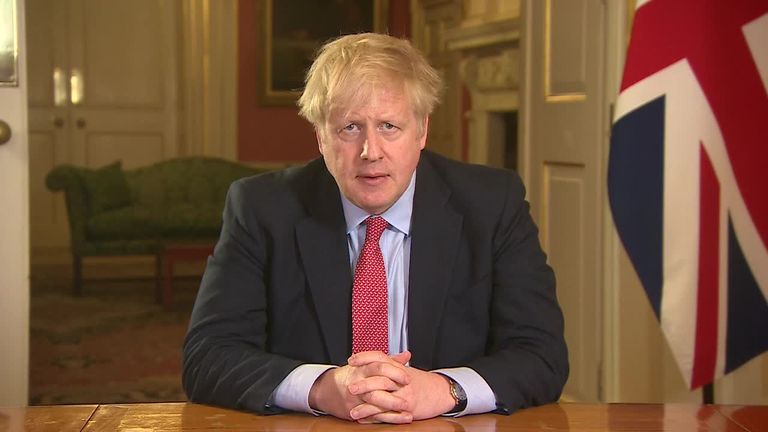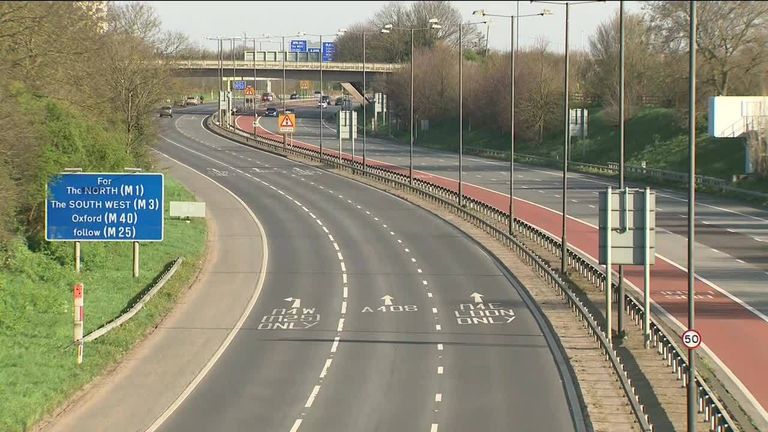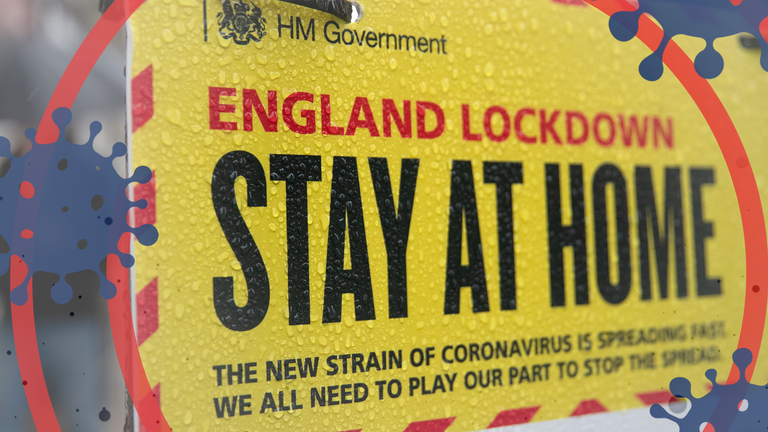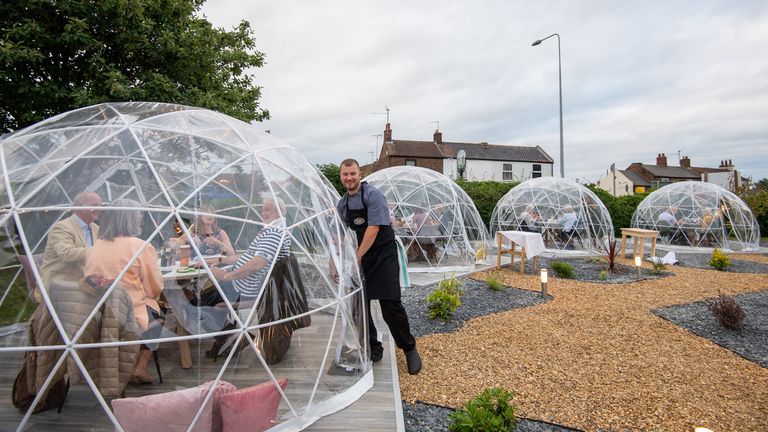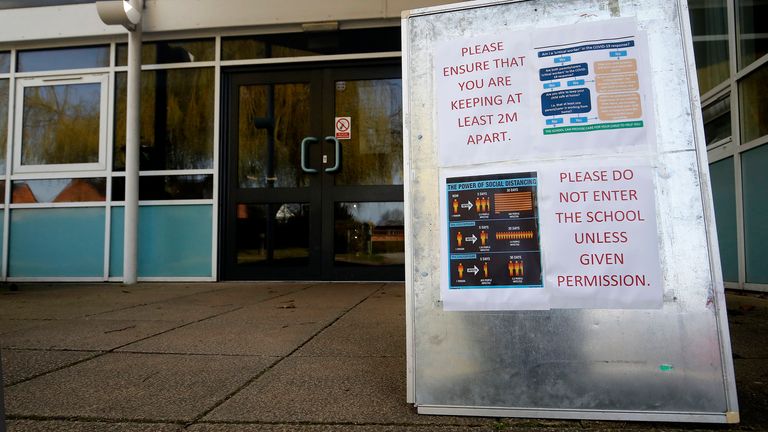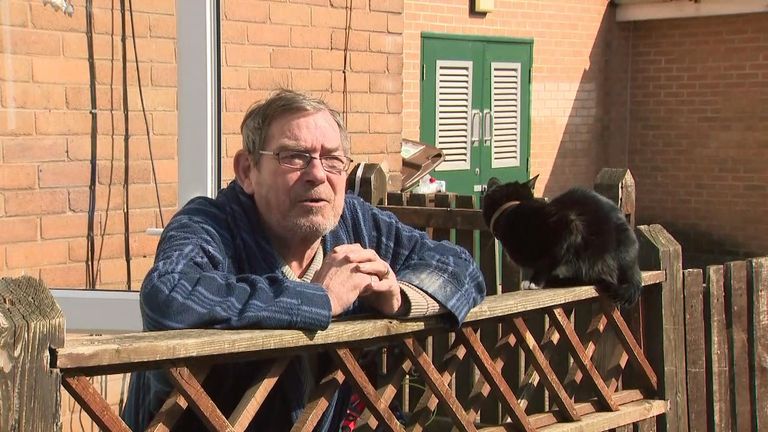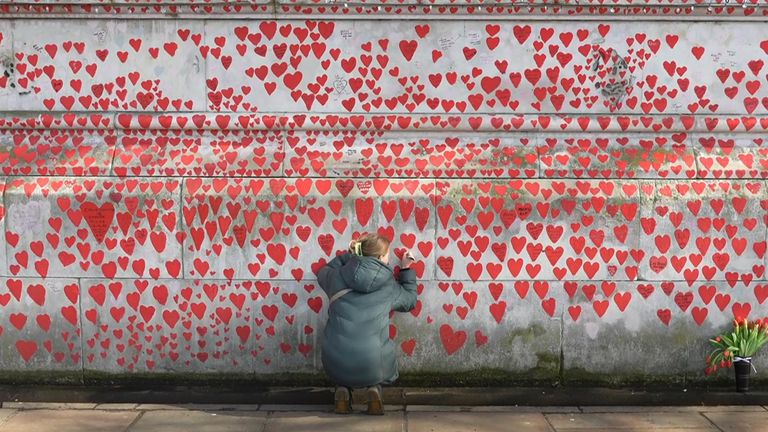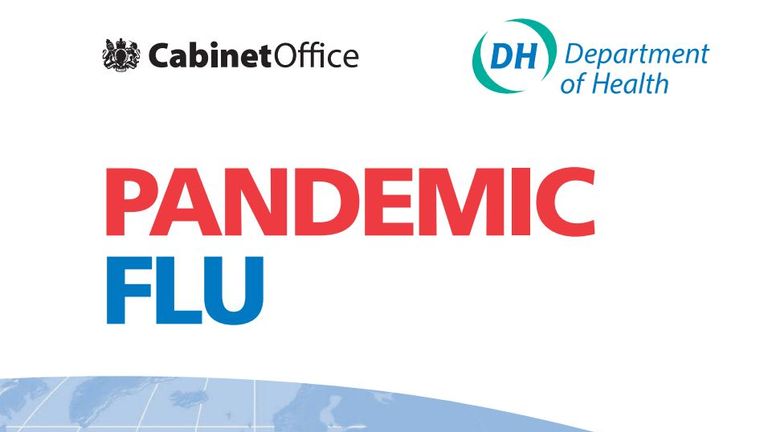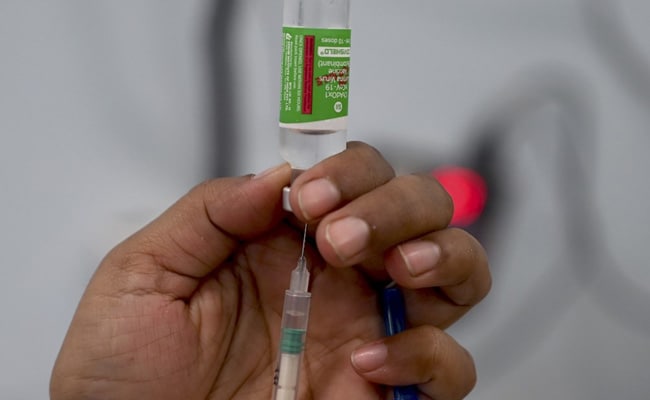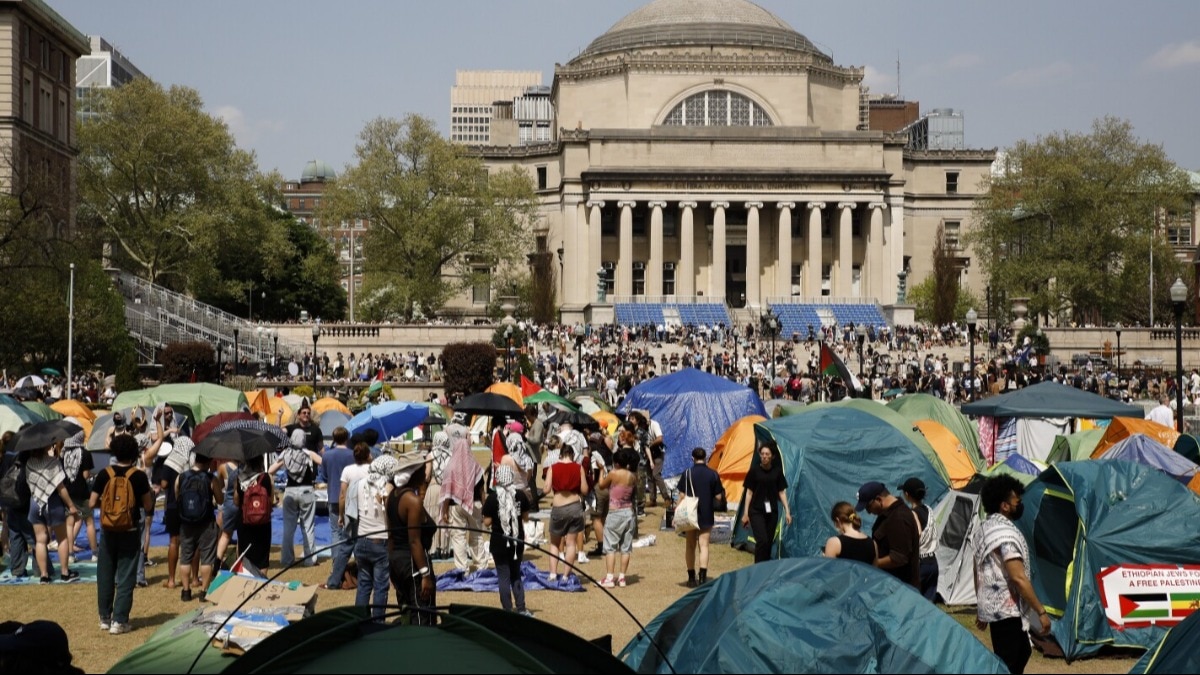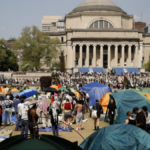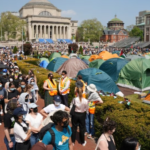Exactly four years ago today, Boris Johnson announced the UK’s first coronavirus lockdown, ordering people to “stay at home”.
Working from home became our reality, people were separated from loved ones, and frontline workers dealt with a new and unknown virus.
The UK is launching a public inquiry into how the problem was handled Coronavirus diseasemany criticized when and how we went into and out of lockdown.
So if another pandemic breaks out and we have to lock down again – how will things be different?
Sky News asked scientists and disaster experts whether we would be told to stay at home again, what lockdown measures would be involved and whether the public would comply.
When will a pandemic happen again?
COVID-19 is often called a “once in a lifetime” event. But more than 6 million people are estimated to have died from COVID-19 globally, and the last similar pandemic occurred four decades ago.
HIV/AIDS, first discovered in 1981, has killed 36 million people worldwide. Prior to this, the Hong Kong flu pandemic in 1968 killed about 1 million people, and the Spanish flu in 1918 killed 50 million people.
Scientists warn that global warming and deforestation also make it increasingly likely that viral or bacterial pathogens can “jump” from animals to humans and trigger another pandemic.
Dr Natalie McDermott, clinical lecturer in infectious diseases at King’s College London, said: “We are creating a situation that is prone to outbreaks.”
“I know COVID-19 has been very difficult for people and we want to believe we can get back to normal, and I totally understand that.
“But the next pandemic is coming – it could be two years, it could be 20 years, it could be longer – but we can’t let our guard down. We need to stay vigilant, prepared, ready to respond.” Sacrifices Again . “
Dr McDermott explained that by cutting down trees in parts of the Amazon and Africa, animals and insects are moving closer to people’s homes.
As temperatures rise, mosquito- and tick-borne viruses such as dengue, chikungunya and Crimean Congo hemorrhagic fever (CCHF) are experiencing previously rare outbreaks in parts of Europe.
“As temperatures rise around the world, even the UK will become an area where these mosquitoes may survive,” she said.
How long will the lockdown last?
Although the UK has implemented three lockdowns, each lasting several months, Professor Stephen Griffin, a virologist at the University of Leeds, believes that “there should be only one”.
“Lockdowns are an extreme response to a situation that has spiraled out of control,” he said.
But he believes lockdowns would be shorter and less severe if investments were made in quickly adaptable mitigation measures such as air ventilation in public buildings, universal vaccines and antiviral drugs.
Dr McDermott said until governments, scientists and health care workers know more about an emerging virus and how it spreads, “at some point a lockdown will be inevitable”.
Professor Adam Kucharski, co-director of the Center for Epidemic Preparedness and Response at the London School of Hygiene and Tropical Medicine, said that if serious infections cannot be controlled and completely eliminated, just like Ebola in Africa and SARS-1 in the East, prevention of large-scale The only way for a disease to become prevalent is to drastically reduce transmission until a vaccine or treatment makes people less susceptible.
It’s been eight months since the first coronavirus vaccine was administered in the UK, with the wider rollout taking more than a year.
Will we be banned from socializing? Will schools be closed?
Professor Lucy Easthope, an expert on mass deaths and epidemics at the University of Bath, said she wanted to see what she called “nuanced quarantine”.
“I would never use the word ‘lockdown’ — it only relates to school shootings,” she said.
Regarding restrictions on social activities, she emphasized the importance of “community and connection” in disaster planning.
The UK Flu Plan 2016 said public gatherings were “an important indicator of normalcy” and that there was “little direct evidence of benefits from canceling such events”.
She said authorities should immediately prioritize creating “large ventilated safe spaces” for children, pregnant women and vulnerable groups.
This will involve converting venues such as cinemas, leisure centers and town halls into community centres.
She added it was important for people to have a “purpose” so socializing with people outside should be allowed once the nature of the virus is clear.
Likewise, pubs, bars, cafes and restaurants should be allowed to open outdoors as soon as possible, she said.
While the flu plan does recommend that schools in affected areas close, emergency measures are recommended to set up temporary tents to hold classes — or just places for children to go.
“Many children don’t have gardens, so it’s important to get them out in a structured way,” Professor Easthope said.
“For education centers, you might see three or four schools merged together.”
Another “epidemic”?
The government spent billions on its test and trace system, which included testing centres, a coronavirus helpline, manual contact tracing by Public Health England at the time, and the NHS COVID app.
Professor Kucharski said that while rapid testing was important to stop people spreading the virus further and the app “showed great promise”, more innovative digital contact tracing may be needed to avoid us becoming dependent on another lockdown .
He said: “To some extent this outbreak has been the NHS app doing what it was designed to do.”
“But with the digital contact tracing infrastructure that some Asian countries have, you can limit disruption to high-risk groups in the event of a specific outbreak rather than reverting to blanket measures.”
He warned it would require “difficult conversations” around privacy, but options included using smartphone location and debit card transactions to connect people to identified cases.
In some countries, after leaving quarantine, people’s phones automatically notify tracers of potential further spread.
Will the public comply?
When public health experts gave evidence to the Covid inquiry last year, they said they wrongly believed the public would quickly tire of lockdowns and suffer “behavioral fatigue”.
Social psychologist and crowd behavior expert Chris Coggin said it was a lack of trust in government that was driving compliance rates down, not just “fatigue” with restrictions.
“The overall message should be positive,” said the lead lecturer at the University of Brighton. “Because if another situation arises, people will comply if necessary.”
He said if another lockdown was needed, the current Conservative government would either have to minimize scandals over its own rule-breaking or change hands entirely to maintain public support.
He added: “If we have a new government, people will be more likely to have confidence in them because they will be less likely to say, ‘This group of people is the same as before – why should we repeat the same mistakes?’
“If they put in more effort and avoid situations such as ‘party gate’ or Dominic Cummings driving to Barnard Castle, they can appeal to a common sense of public acceptance and compliance rates are likely to remain relatively high. High level.”
From Covid fines to arrests during Black Lives Matter protests and Sarah Everard vigils, Professor Easthope describes lockdown legislation as “absolutely terrible” and “brutally implemented”.
Mr Cocking believes lockdown laws are largely irrelevant to people’s decisions about whether to comply with restrictions.
“What matters is not the existing laws, but whether people psychologically agree with the need to obey the laws,” he said.
For those who don’t, engaging with diverse groups is important to avoid mass movements of “lockdown skeptics”.
“People may feel unable to comply with restrictions for many different reasons. But lumping them together is a real mistake because then you see them all as part of the same group, which further alienates them from the authorities, ” added Mr. Coggin.
Are we prepared enough?
Four years before COVID-19, the UK conducted secret pandemic preparedness exercises for influenza and coronavirus outbreaks.
Detailed reports on flu drills have been compiled, but public health officials told the COVID-19 Inquiry that coronavirus drills were not carried out.
Professors Kucharski and Easthope said the wider flu plan could easily be adapted.
Professor Kucharski said: “Separating flu plans from coronavirus plans is nonsense.”
“The characteristics of COVID-19 are very much like those of infection in a pandemic. There should be a wider discussion about acceptable outcomes from the terrible trade-offs we have to make.”
read more:
Doctor sues NHS over long Covid
How widespread is the spread of the new coronavirus now?
Professor Easthope said that in the late 2010s she and other emergency planners identified gaps in infrastructure that meant the UK was “not even prepared to deal with a relatively manageable pandemic” in health and social care . She also said the stockpile of personal protective equipment in 2017 “failed.”
But she says the internet’s ability to handle so many online processes is both “empowering and unifying”.
“We just don’t know how it’s going to perform, but ultimately, that’s one of the reasons we don’t have a complete meltdown,” she said.
A spokesman for the Department of Health and Social Care told Sky News: “Throughout the pandemic, the government has acted to save lives and livelihoods, prevent the NHS from being overwhelmed and roll out world-leading vaccines that have protected millions of people across the country. life.
“We have always said that lessons can be learned from the pandemic and we are committed to learning from the COVID-19 findings, which will play a key role in informing the government’s future planning and preparedness. We will consider all suggestions raised All recommendations are given to the department.”
Follow us on Google news ,Twitter , and Join Whatsapp Group of thelocalreport.in
